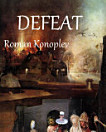The Grand Inquisitor - Dostoyevsky
About this ebook
The Inquisitor argues that humanity, weak and fearful of freedom, does not wish to bear the responsibility of choosing between good and evil. According to him, people prefer to submit to an authority that guarantees bread, security, and guidance, rather than live with the uncertainty of spiritual freedom. In his speech, he claims that the Church has corrected Christ's work, assuming the power to govern in the name of obedience and stability, even at the cost of betraying the original message.
The narrative exposes fundamental tensions between freedom and authority, faith and power, truth and convenience. Christ, confronted with the Inquisitor's harsh words, remains silent, responding only with a gesture of love: a kiss. This act encapsulates the radical opposition between coercive power and mercy, leaving open the reflection on humanity's fate and the essence of Christianity.
Since its publication, The Grand Inquisitor has been interpreted as one of the most profound meditations on the nature of religious power, human frailty, and the dilemma of freedom, establishing itself as one of the most emblematic and debated passages in world literature.
About the author
Fyodor Dostoyevsky was a Russian novelist, considered one of the most influential figures in world literature. Born in Moscow into a middle-class family, Dostoyevsky is known for his works exploring human psychology, existential suffering, faith, guilt, and the moral struggle between good and evil. His ability to delve into the depths of the human soul established him as one of the great masters of 19th-century realist fiction.
Dostoyevsky's literary career began with the novel Poor Folk (1846), which brought him immediate recognition in Russian literary circles. However, his life took a dramatic turn when he was arrested for participating in an intellectual circle accused of subversive activities against the tsar. Sentenced to death in 1849, he was pardoned at the last moment and sent to forced labor in Siberia, an experience that profoundly shaped his vision of humanity and society.
Dostoyevsky's work revolutionized narrative by placing psychological and moral conflict at the center of the novel. He was a precursor of existentialist literature and influenced thinkers such as Friedrich Nietzsche, Sigmund Freud, Jean-Paul Sartre, and Albert Camus. His ability to portray tormented characters facing ethical and spiritual dilemmas opened new possibilities for modern literature, anticipating philosophical and psychoanalytic debates of the 20th century.
Dostoyevsky combined intense, passionate storytelling with a tragic vision of the human condition. His characters, caught between faith and despair, crime and redemption, reflect humanity's eternal struggle between good and evil.








